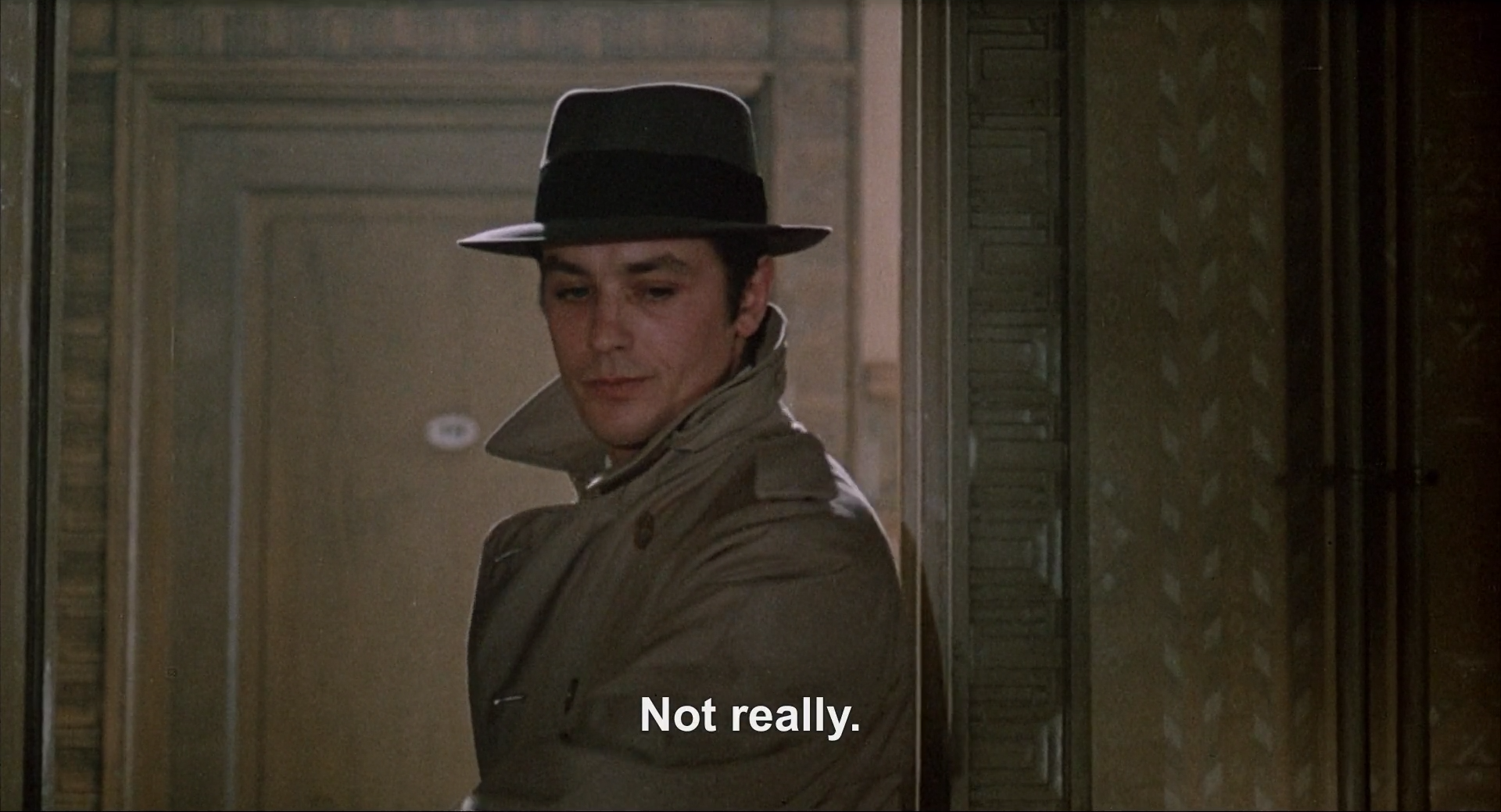Jean-Pierre Melville's Le Samouraï: "I never lose. Not really."
Le Samouraï, directed by Jean-Pierre Melville, screenplay by Jean-Pierre Melville and Georges Pellegrin, cinematography by Henri Decaë, music by François de Roubaix, and edit by Monique Bonnot and Yolande Maurette.
Highlighting the importance of Jean-Pierre Melville in film history, the book World Film Directors shares: “Long respected as an important forebear of the Nouvelle Vague, Melville has been recognized increasingly as a master in his own right, and as a director almost unique in his ability to show ‘that the cinema, for all its technical complications, can still be an extremely personal art.’” Alain Delon, the star of Melville’s masterpiece Le Samouraï, offers a similar impression on the impact of the director to the art of cinema: “He’s the greatest director I’ve had the good fortune, pleasure, and honor to work with up to this point. It’d take too long to explain. He’s wonderful. He knows more about cinema than anyone. He’s the greatest director I know, the greatest cameraman, the best at framing and lighting, the best at everything. He’s a living encyclopedia of cinema.” There is a lot of inspiration to absorb from a filmmaker like Jean-Pierre Melville.
As Melville himself put it, “You must be madly in love with cinema to create films. You also need a huge cinematic baggage.” Your awareness of film history, of the technical aspects of filmmaking, of film language, and of your cinematic style are vital to great filmmaking. Determination is another quality that emerges from that mad love for cinema. After serving in World War II, Melville applied to join the union in the French film industry and was rejected. Determined, he opened his own studio and began writing and directing his films. Later, he lost his studio to a fire, only to successfully come out of such a devastation through the need to continue making films. Obstacles always surface for the filmmaker, however, it is how one faces those obstacles that counts.
Quoting the opening line of Le Samouraï, Rui Nogueira, the author of Melville on Melville, said to Jean-Pierre Melville, “’There is no greater solitude than that of the Samurai, unless perhaps it be that of the tiger in the jungle’ might apply equally well to your situation as an independent filmmaker outside the industry.” Melville answered, “Absolutely.” A great and unique inspiration for all pursuing filmmaking, Jean-Pierre Melville shows us the importance of being true to and enriching oneself.
